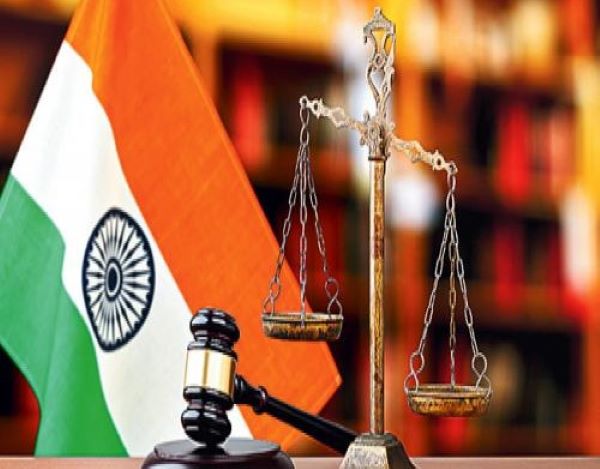 In today’s India, a silent but growing frustration runs deep across the country. From remote villages to crowded cities, people are increasingly disillusioned with the very systems that were designed to protect their rights — the judiciary, the legislature, and the administration. Almost every citizen, in some way, feels let down. The core of this disappointment lies in a stark reality: decisions and announcements are made regularly, but justice is rarely delivered. The people of India no longer want hollow declarations or delayed promises — they want real, timely, and effective justice.
In today’s India, a silent but growing frustration runs deep across the country. From remote villages to crowded cities, people are increasingly disillusioned with the very systems that were designed to protect their rights — the judiciary, the legislature, and the administration. Almost every citizen, in some way, feels let down. The core of this disappointment lies in a stark reality: decisions and announcements are made regularly, but justice is rarely delivered. The people of India no longer want hollow declarations or delayed promises — they want real, timely, and effective justice.
The judiciary, long seen as the last hope for the common man, is now overwhelmed and underperforming. With more than 5 crore cases pending in courts across the nation, justice has become a waiting game — and for many, it is a wait that outlives their lifetimes. For the poor and the powerless, the courts seem more like a trap than a temple of justice. Endless delays, high legal costs, and complex procedures have eroded public trust. In a system where trials drag on for decades and convictions are rare, the age-old saying holds true: Justice delayed is justice denied.
The legislature, another vital pillar of democracy, is also losing its credibility. Lawmaking, which should be a thoughtful and inclusive process, has increasingly turned into a political circus. Parliamentary sessions are frequently disrupted, opposition voices are ignored, and laws are often passed without meaningful debate. The focus has shifted from the welfare of the people to the welfare of political parties. As a result, legislation often fails to reflect the real needs and struggles of ordinary citizens. The people feel unheard and unrepresented in the very institutions meant to voice their concerns.
On the administrative front, bureaucracy continues to be a major hurdle for citizens seeking basic services. What should have been a people-friendly and transparent system has become a maze of red tape, corruption, and inefficiency. From getting a simple document verified to seeking compensation for a disaster, people are forced to run from one office to another. Instead of serving the public, the administration often seems to serve itself. Those with influence and money manage to navigate the system with ease, while the poor and marginalized are left to suffer in silence.
What adds insult to injury is the constant barrage of government announcements and public statements claiming that “justice has been served,” “schemes have been launched,” or “laws have been passed.” But these announcements often do not bring any tangible change to the lives of common people. Speeches and press releases may create headlines, but they do not heal wounds or solve problems. The public is not demanding publicity; they are demanding fairness, accountability, and timely action. They are tired of being fed words when what they need is action.
This growing disconnect between announcements and actual justice reflects a deeper crisis in the functioning of our democracy. It highlights the urgent need for comprehensive reforms across all three pillars of governance. The judiciary must be strengthened to ensure faster trials and greater accessibility. The legislature must return to genuine dialogue and people-centric lawmaking. The administration must be restructured to prioritize transparency, efficiency, and service to the people.
India is not lacking in institutions or laws. What it lacks is implementation, accountability, and integrity. If we continue to ignore the widening gap between decision and justice, we risk turning democracy into a façade. The citizens of this country deserve more than announcements. They deserve results. They deserve justice — not eventually, not conditionally, but now.